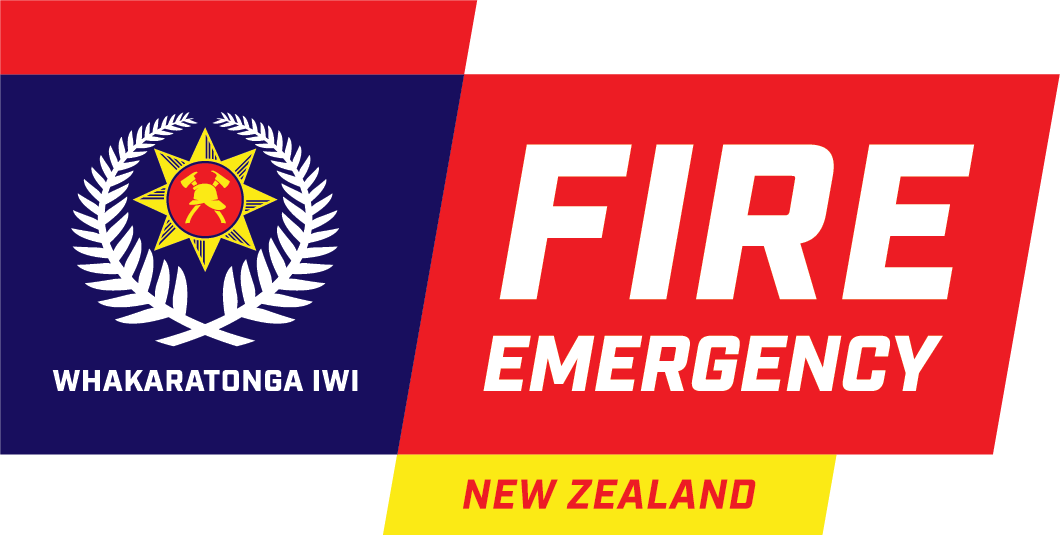Te Ūpoko Celebrating Success Awards 2020
It is with great pleasure that we announce the results of 2020’s Celebrating Success Awards for Te Ūpoko, which were held on 24 November 2020.
Hawke's Bay Recovery Team receiving their award
As always, choosing the winners was no easy task for the panel, so thank you for all the nominations and to everyone for their continued commitment and contributions to the organisation and wider community.
Bruce Stubbs, Region Manager, said, "Following the publication of our organisational Strategic Priorities, we took the initiative this year to update our nomination categories to reflect them for our 2020 awards. The Celebrating Success Awards recognise excellence and outstanding achievement and contribution to Fire and Emergency and the wider community. I am incredibly proud to see the work going on across Te Ūpoko and look forward to celebrating again next year."
Overall winners: National Park Volunteer Fire Brigade
Here are the category winners:
Building Resilient Communities: Hawke’s Bay Recovery Team
Hawke’s Bay Recovery Team’s initiative provides emotional and practical support to people who have experienced a traumatic event, ensuring they have access to the right help and support following the event. This has also created an opportunity for people in the community to join Fire and Emergency in roles other than operations. The team is now 20 volunteers strong with representation across the whole of the Hawke’s Bay District.
Collaboration, Partnerships and Influence: Assistant Area Manager (AAM) Michael Dombroski and Fire Risk Management Officer (FROM) Bruce Cole
AAM Michael Dombroski and FRMO Bruce Cole from the Wellington area for their work in providing a solution for high-risk buildings where alarm panels lacked the location of the building fire hydrant system. They introduced the concept of a coloured “H” symbol to be located on new panels and to retrofit on existing panels, thereby reducing the potential risk to firefighters using incorrect access to a building. This initiative has since resulted in a change in New Zealand standards.
Growing Our People: National Park Volunteer Fire Brigade (VFB)
National Park VFB have implemented several positive initiatives, which have transformed their brigade from being ‘at risk’ to ‘high-performing’ in a relatively short period of time. This has occurred following a change in leadership. The initiatives include encouraging diversity in membership of the brigade, initiating two training nights per week to accommodate working patterns of brigade members, introducing a ‘response ladder’ system giving all personnel equal opportunity to respond to calls, training online during the COVID-19 lockdown and focusing on preparing people for courses to ensure an effective response, across a wide range of incidents.
Intelligence-Led, Evidence-Based Decisions: Station Officer (SO) Bruce Botherway
SO Bruce Botherway from the Hawke’s Bay area for his work in developing an app-based product, in conjunction with the ArcGis platform. The app can be used by first responders, operators of major hazard facilities and high-occupancy establishments, to provide a picture of the impact and target people who are affected by events, to inform the prioritisation of resources at a local, regional and national level. The benefits of this initiative were realised during the recent flooding events in Hawke’s Bay earlier this month.
Keeping Pace with Change: Whanganui Critical Injury and Personal Stress Support (CIPSS) Team
Whanganui CIPSS Team, who were called on for support following a high-profile, multi-fatality incident involving family members of a volunteer firefighter. The team initiated a unique response by engaging a clinical psychologist to attend initial meetings to which partners of volunteers were also given the opportunity to attend. The team also called on the Manawatu CIPSS team to ensure sufficient support was available following a subsequent fatal incident which occurred within a few weeks, affecting the same people. This timely response, recognising the urgent need for support and adapting from their usual process, helped reduce the impact of the event on the psychological wellbeing of our firefighters and their families.
